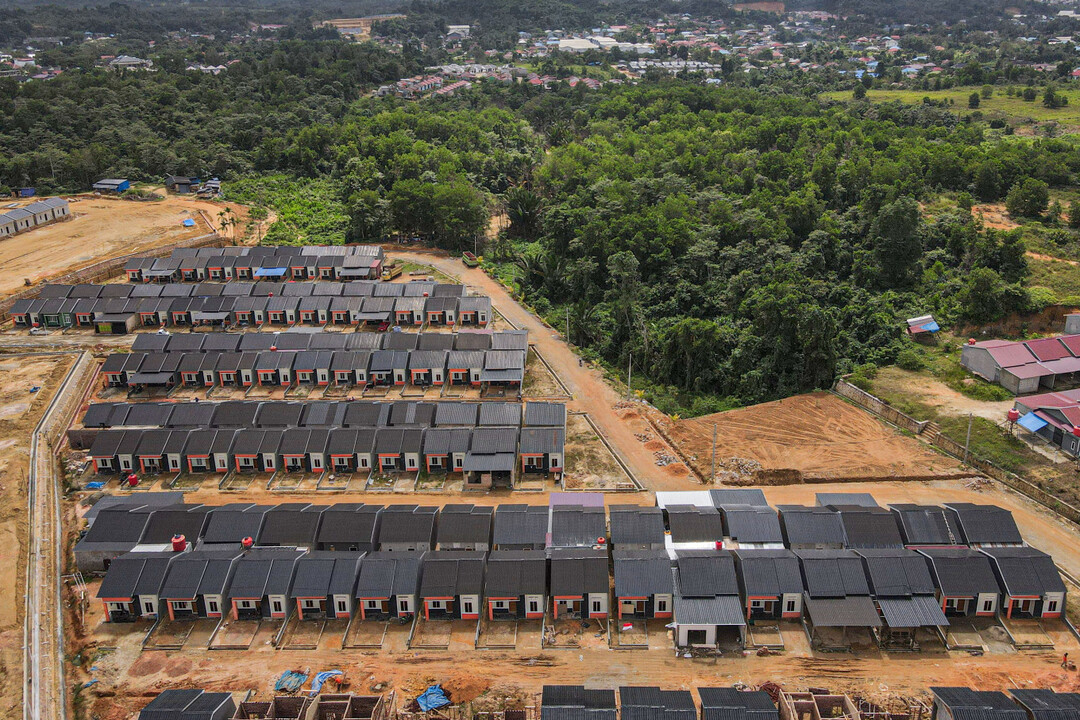
JAKARTA – In a landmark move to address Indonesia's burgeoning housing crisis, Qatar has pledged to invest between $16 billion and $20 billion in the construction of one million apartment units, as part of President Prabowo's ambitious plan to build 15 million new homes. The Memorandum of Understanding (MoU), signed by Sheikh Abdulaziz bin Abdulrahman Al Thani of Qilaa International Group and Indonesia’s Minister of Housing and Settlements, Maruarar Sirait, signals a significant step towards alleviating the country's 11-million-unit housing backlog.
The investment, slated to commence post-Eid, will also support housing development in the new capital, Nusantara (IKN). However, this ambitious project faces considerable challenges, including cultural preferences, regulatory hurdles, and the imperative for sustainable development.
Cultural Discrepancies and Market Preferences
A primary obstacle lies in the divergent housing preferences between Qatar and Indonesia. While Qatar favors high-rise apartments, Indonesian homebuyers predominantly prefer landed houses. This preference stems from cultural norms, with many Indonesians aspiring to own individual homes with yards, accommodating multi-generational living. The perceived limitations in space, privacy, and community integration in apartments could deter potential buyers, risking the project’s market reception.
Regulatory and Infrastructure Bottlenecks
Beyond cultural nuances, Indonesia's complex regulatory landscape poses a significant challenge. The lengthy and multi-layered permitting process, involving national and local authorities, could lead to substantial delays. Land acquisition, often plagued by legal disputes and unclear titles, further complicates matters. Inconsistent zoning laws across regions add to the bureaucratic hurdles.
Infrastructure limitations also loom large. Many areas targeted for affordable housing lack adequate transportation, water, and electricity infrastructure. Poorly developed roads and public transit systems could diminish the appeal of new housing projects. The electricity grid, particularly in rural areas, may struggle to support high-density residential developments, necessitating significant upgrades to ensure project efficiency.
Sustainability as a Key Component
Amidst the focus on affordability, integrating sustainability is crucial. Indonesia’s Indonesia Green Affordable House Program (IGAHP), aiming for one million eco-friendly homes by 2030, underscores the nation’s commitment to green building practices. Leveraging Qatar’s expertise in renewable energy, particularly solar power, presents an opportunity to incorporate sustainable solutions. Qatar’s experience with large-scale solar farms, such as the Al Kharsaah Solar Plant, could serve as a model for integrating solar panels, battery storage, and smart metering technology in residential developments.
Partnerships with Indonesia’s state-owned electricity company, PLN, could facilitate the implementation of these sustainable initiatives. Addressing these challenges will be critical to ensuring the success and long-term impact of Qatar’s substantial investment in Indonesia’s affordable housing sector.
[Copyright (c) Global Economic Times. All Rights Reserved.]






























